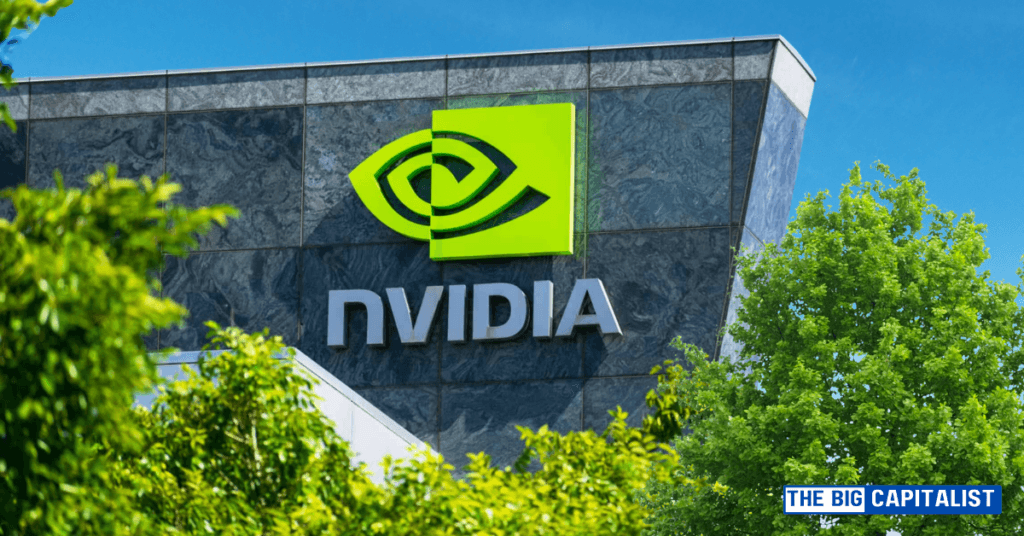The world of artificial intelligence is turning heads in almost every industry. We’re hearing more about how AI is reshaping everything, from healthcare to consumer tech and finance, and this interest goes beyond academic discussions. AI’s rapid rise is creating real economic opportunities, especially for companies involved in the niche but transformative field of AI hardware. Nvidia, an AI chipmaker with substantial market dominance, is arguably the most prominent beneficiary of this revolution, making Nvidia AI stock investment a compelling consideration.
As we approach October 17, Nvidia investors are focused on a critical event: the quarterly report from one of Nvidia’s key partners, Taiwan Semiconductor Manufacturing Company (TSMC). TSMC’s results could offer new insights into the growth potential for Nvidia, given its substantial reliance on TSMC to manufacture its AI chips. So, the big question is: should you consider investing in Nvidia stock before October 17? Let’s break it down.
The Role of Nvidia in the AI Boom
Nvidia plays a crucial role in the AI ecosystem with its pioneering development of powerful GPUs (Graphics Processing Units). While initially designed for high-end graphics and gaming purposes, GPUs have found an essential role in AI training and inference due to their ability to handle massive amounts of data and swiftly perform complex computations. By providing the computational backbone, Nvidia’s technology enables the development and deployment of artificial intelligence models across industries.
With the increasing demand for AI-powered applications—whether it’s natural language processing, computer vision, or autonomous driving—the demand for Nvidia’s chips has skyrocketed. This wave has driven Nvidia’s stock price upward by a staggering 200% over the past year alone. Nvidia’s enviable growth trajectory reflects just how central AI hardware is to the broader AI revolution.
In many ways, the question of whether to invest in Nvidia isn’t just about timing but also about understanding its outsized importance in an industry poised for almost limitless growth.
The Importance of TSMC to Nvidia
Taiwan Semiconductor Manufacturing Company (TSMC) is the world’s largest contract chipmaker, producing highly specialized semiconductors that power global tech. Whether it’s Apple’s iPhone or Nvidia’s AI chips, TSMC is involved—it’s estimated to produce around 90% of the world’s most advanced semiconductors.
Nvidia relies heavily on TSMC not just for the fabrication of its GPUs but for its capacity to meet the soaring demand in the AI sector. As of mid-2023, Nvidia accounted for roughly 11% of TSMC’s total sales; experts suggest that figure has likely grown.
This interdependence makes TSMC’s performance consequential for Nvidia. TSMC’s third-quarter results, to be announced on October 17, could shed light on whether demand for Nvidia’s AI chips remains sturdy. Given the critical role TSMC plays in Nvidia’s supply chain, the chipmaker’s announcement can potentially drive Nvidia’s stock higher or lower.
Indications of rising demand from TSMC would offer a strong tailwind for Nvidia, reinforcing the idea that the AI revolution is far from slowing down.
TSMC and Q3 Projections: What to Expect
If you’ve been following TSMC, you’d already know its third-quarter results will likely be strong. The company provides a monthly revenue breakdown, allowing analysts and investors to gauge how the quarter is shaping up. And the figures don’t disappoint—TSMC generated NT$759.7 million ($23.6 billion) for the three-month period ending in September. This represents a growth of about 39% year-over-year, exceeding initial analyst projections and TSMC’s own forecast, which predicted revenue closer to $22.8 billion.
Why does that matter for Nvidia? If TSMC’s revenue and performance exceed expectations, it shows demand for AI chips is soaring. Given that Nvidia is a major client and leader in the AI realm, any uptick in TSMC’s sales of advanced semiconductors offers a direct snapshot of Nvidia’s future performance.
For investors, this projected growth is a flashing signal about Nvidia’s near-term fortunes: AI demand continues to grow, and the chips Nvidia relies on are thriving.
Blackwell Is Coming: Another Tailwind
In addition to the continuing success of its current AI chip offerings, Nvidia is gearing up for the release of its next-generation Blackwell architecture. Nvidia’s CEO Jensen Huang has confirmed that Blackwell chips are already in full production, with demand outstripping even the company’s own forecasts.
According to analysts at Morgan Stanley, Nvidia is expected to generate nearly $10 billion in revenue from Blackwell’s widespread deployment. This new architecture is designed to substantially enhance AI computing, putting Nvidia in a position to leverage the next wave of AI applications more effectively than its competitors.
The widespread demand for Blackwell is yet another factor pushing Nvidia forward. The combination of TSMC ramping up chip production and Nvidia’s Blackwell project entering full steam could fuel another significant boost to the company’s growth.
Nvidia’s Valuation: Is It Too High?
Whenever a stock rises dramatically, questions surface about its valuation. Nvidia’s current multiple is high, trading at around 65 times earnings. In some instances, such a lofty valuation would make investors wary. Why pay so much for a piece of Nvidia today when future growth is already priced into the stock?
While this high multiple may concern some traditional value investors, Nvidia isn’t a traditional stock. Its market dominance in an industry that’s still in the early stages of commercialization justifies the price for many investors. It’s worth remembering that many technology pioneers—Amazon, Tesla, and even Apple—once traded at what seemed like sky-high valuations before their growth stories proved the sceptics wrong. Nvidia could belong in that category, particularly as AI becomes more ubiquitous.
Looking ahead, analysts suggest Nvidia’s earnings per share could rise to $4.04 by 2026, bringing down its Forward earnings multiple to about 34. This doesn’t make the stock “cheap” by any stretch, but it becomes more approachable for growth-oriented investors who are betting on Nvidia’s ability to dominate the AI sector for years to come.
Time to Buy Nvidia Before October 17?
So, should you buy Nvidia stock before October 17? The short answer is that it’s not solely about timing. Nvidia is positioned as a market leader in the AI chip space for the foreseeable future, and the growing AI industry means its star is unlikely to dim anytime soon. Whether you decide to buy shares before or after TSMC’s earnings announcement is less relevant in the long-term picture.
The collaborative relationship between TSMC and Nvidia strengthens Nvidia’s growth story. TSMC’s better-than-expected Q3 performance will act as positive reinforcement for investors on the AI theme, but it won’t materially change the overall thesis: Nvidia remains a dominant player with plenty of growth left on the table.
Long-term investors may still find Nvidia’s current price reasonable when considering its projected earnings growth. On the other hand, short-term traders might want to pay close attention to the October 17 TSMC report to see if a potential bump in Nvidia’s stock price occurs afterwards.
How to Capitalize
If you’re tempted to jump into Nvidia but want to be cautious, there are a couple of approaches to consider.
1. Long-term Hold Strategy: Nvidia is a market leader in a sector poised for explosive growth. A patient investor can buy Nvidia with the intent to hold over several years. Keep in mind that even if the stock dips—and large valuations mean volatility may follow—its dominance in AI technology would likely put it on a growth path for years ahead.
2. Dollar-Cost Averaging: If Nvidia’s current price seems a bit steep, dollar-cost averaging can insulate against stock volatility. By investing a fixed dollar amount at regular intervals, you can average out the highs and lows of Nvidia’s stock price over time.
3. Keep It Balanced: Nvidia has huge potential but is priced like a high-flyer. Avoid putting all your eggs in one basket, and make sure Nvidia is only a portion of your diversified portfolio. Balance it with other investments that fit your risk tolerance and financial goals.
Nvidia’s positioning in the AI space is undeniable, and its reliance on key partners like TSMC offers a strategic advantage. Investing before October 17 could offer a short-term boost based on the supplier’s positive earnings. But for those in it for the long haul, the bigger prize is Nvidia’s continued leadership in AI over the coming years.
















